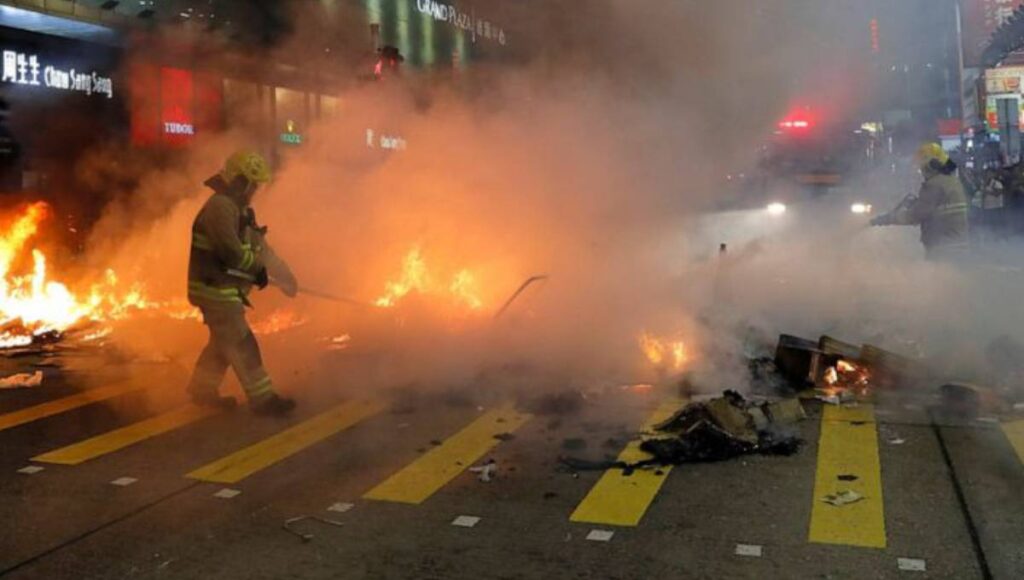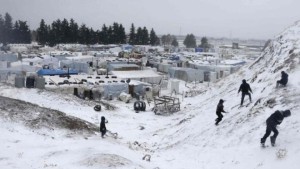Hong Kong, Sept 7 (AP/UNB) — Hong Kong authorities were limiting airport transport services and controlling access to terminals Saturday as they braced for a second weekend of disruption following overnight demonstrations that turned violent.
Express train service will run from the station in downtown Hong Kong direct to the airport, skipping all stations in-between and only those with flight tickets can enter the terminals, airport officials said. Bus services will also be adjusted to ensure smooth traffic.
The airport, the world’s eighth busiest air hub, has been a frequent target during a summer of protests sparked by an extradition bill that would have allowed criminal suspects in the semi-autonomous Chinese territory to be sent to the mainland to face trial. Many saw the bill as a glaring example of the city’s eroding autonomy since the former British colony returned to Chinese control in 1997.
Hong Kong leader Carrie Lam announced Wednesday that her government would formally withdraw the bill, but that has failed to appease protesters who have expanded their goals to include other issues.
The airport rail link was suspended last weekend after protesters threw objects on the track, blocked roads near the airport with burning barricades and damaged a metro station. Last month, the airport was shut down for two days and hundreds of flights cancelled after protesters occupied the terminals, leading to violent clashes.
Police have warned protesters against plans to use fake boarding passes to gain entry to the airport Saturday, warning that offenders could face up to 14 years in jail. Police also said they will monitor road traffic and nab drivers who intentionally slow down to disrupt traffic.
Violence erupted again late Friday in the crowded Kowloon area after police fired volleys of tear gas and rubber bullets as protesters smashed up metro stations and set fires on the street.
Demonstrators retreated after riot police chased them down streets but they regrouped again. Some lit piles boxes to build burning barricades while others used hammers and metal rods to smash traffic lights and vandalize subway stations. Graffiti along walls read “Boycott China” and “Liberty or death.”
Police said three subway stations had to be shut down after protesters thrashed ticket machines, security cameras and turnstiles and damaged fire facilities. Police slammed the behavior as “outrageous” and vowed to take “resolute enforcement actions.”
The persistent violence has hurt Hong Kong’s economy and sparked fears of a Chinese military intervention. Chinese officials have warned that Beijing will “not sit idly by” if the situation worsens.
Protesters have adopted a new slogan, “Five key demands, not one less.” In addition to the withdrawal of the extradition bill, they want an independent investigation into accusations of police brutality, the unconditional release of those detained during the protests, no more labeling of the protests as riots, and direct elections of the city’s leaders.




